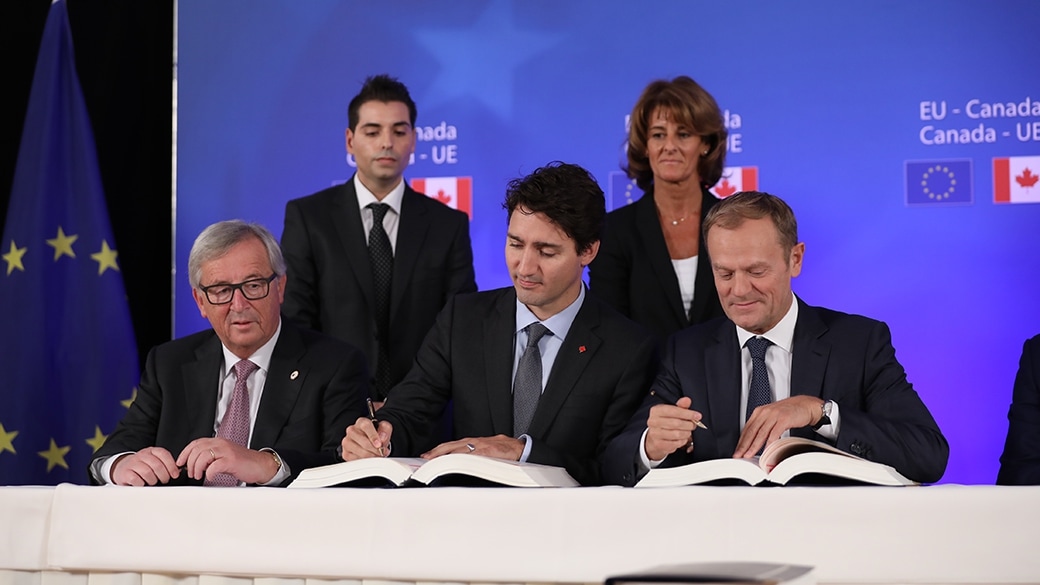|
INTERNATIONAL -- The EU-Canada Comprehensive Economic and Trade Agreement (CETA), which aims to boost goods and services trade and investment flows, was approved by the International Trade Committee on Tuesday. The full House is to vote on the deal in February.
Also read, Canada amends roughly 200 tariffs on imported foods. "By approving CETA today we take a significant step forward. In the face of rising protectionism and populism, Parliament is able and willing to act on behalf of European citizens. I stand for a strong and global Europe and for open markets. Ratifying this agreement with Canada will enable trade to continue to bring wealth to both shores of our transatlantic friendship. The duty of our governments is to ensure that each and every one of us benefits from this wealth”, rapporteur for the CETA agreement Artis Pabriks (EPP, LV) said before the vote. The draft recommendation was passed by 25 votes to 15 with 1 abstention. Goods and services trade CETA will remove tariffs on most traded goods and services. It also provides for the mutual recognition of certification for a wide range of products. This means that if an EU firm wants to export toys, for example, it will only need to get its product tested once, in Europe, to obtain a certificate that is valid for Canada, thus saving time and money. Canada is to open up its public procurement markets at both federal and municipal levels, to ensure symmetrical access. EU service suppliers ranging from maritime services through telecoms and engineering to environmental services and accountancy are to benefit from access to the Canadian market. Safeguards for agricultural goods and environmental and social standards In negotiations, the EU secured protection for over 140 European geographical indications for food and drinks sold on the Canadian market. Sustainable development provisions were included to maintain environmental and social standards and ensure that trade and investment enhance both. To allay citizens’ concerns that the deal gives too much power to multinational companies and that governments will not be able to legislate to protect health, safety or the environment, the EU and Canada recognise in both the preamble to the deal and an attached joint declaration that these provisions preserve the domestic right to regulate. Exceptions The CETA deal will not remove tariff barriers for public services, audiovisual and transport services and a few agricultural products, such as dairy, poultry and eggs. New investor protection rules Parliament tracked the negotiations closely, voicing its opinion in its resolution of June 2011 on EU-Canada trade relations and also in a 2015 resolution on the Transatlantic Trade and Investment Partnership (TTIP) talks. In response to parliamentary pressure, the controversial investor-state-dispute settlement (ISDS) mechanism was replaced by the Investment Court System (ICS), which aims to ensure government control over the choice of arbitrators and enhances transparency. Next steps The deal will be put to a vote by Parliament as a whole at the February plenary session in Strasbourg. If Parliament approves the CETA deal, it could apply provisionally from as early as April 2017. As CETA was declared a mixed agreement by the European Commission in July, it will also need to be ratified by national and regional parliaments. SOURCE European Parliament Press Release
0 Comments
Your comment will be posted after it is approved.
Leave a Reply. |
Advertisement
News & Updates
Stay informed with the latest news around foodservice, agriculture and other related food news. Advertisement Opportunities
|


 RSS Feed
RSS Feed


